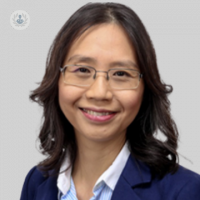Trichology
Dr Pick-Ngor Woo - Dermatology
Created on: 12-15-2014
Updated on: 03-16-2023
Edited by: Conor Dunworth
What is trichology?
Trichology is the science that studies the diagnosis and treatment of problems of the hair, scalp and hair follicles, which lead to symptoms of dandruff, texture problems, hair loss and other serious conditions.
The name trichology stems from the Greek word 'tricos', which means 'hair' and the suffix 'ology', which means 'the study of'. The pathology treats the diseases that affect human hair whilst focusing on the process of regrowing hair.

What are the risk factors for problems of the scalp and hair?
The head is one of the main areas of our body and is constantly subjected to different factors that can harm the health of our hair or scalp, such as the sun, hair styling products or other causes such as vitamin deficiency or stress.
Such factors can alter the nervous and vascular irrigation system of the head causing ageing and early impoverishment of the skin and hair. The different techniques of trichology consist of treating the hair as an extension of the skin and improving its health.

What is a trichologist?
A trichologist is a hair specialist who has both a holistic and medical approach to treating conditions of the hair and scalp. The specialist would have had to have trained in anatomy and physiology, genetic inheritance, microbiology, microscopy, nutrition and chemistry. Unlike dermatologists, trichologists have a complete understanding of how hair loss works and how it can be treated.
Which conditions does a trichologist treat?
A trichologist treats the following conditions of the hair:
- androgenetic alopecia
- scarring alopecia
- frontal fibrosing alopecia
- thyroid disorders
- telogen Effluvium
- traumatic hair loss
- chemical damage
They treat the following conditions of the scalp:
- cradle cap
- psoriasis
- ringworm
- seborrhoeic eczema
- contact dermatitis
- folliculitis
What can I expect during a consultation with a trichologist?
A trichologist will get to know your personal history, lifestyle, genetic and environmental conditions. They are interested in details such as whether you are on any medications, suffer from a hormonal imbalance, are under a lot of stress or if you have any nutritional deficiencies.
You may also wish to visit a trichologist for advice on how to keep your hair and scalp in good condition as to avoid any health conditions in the first place.
